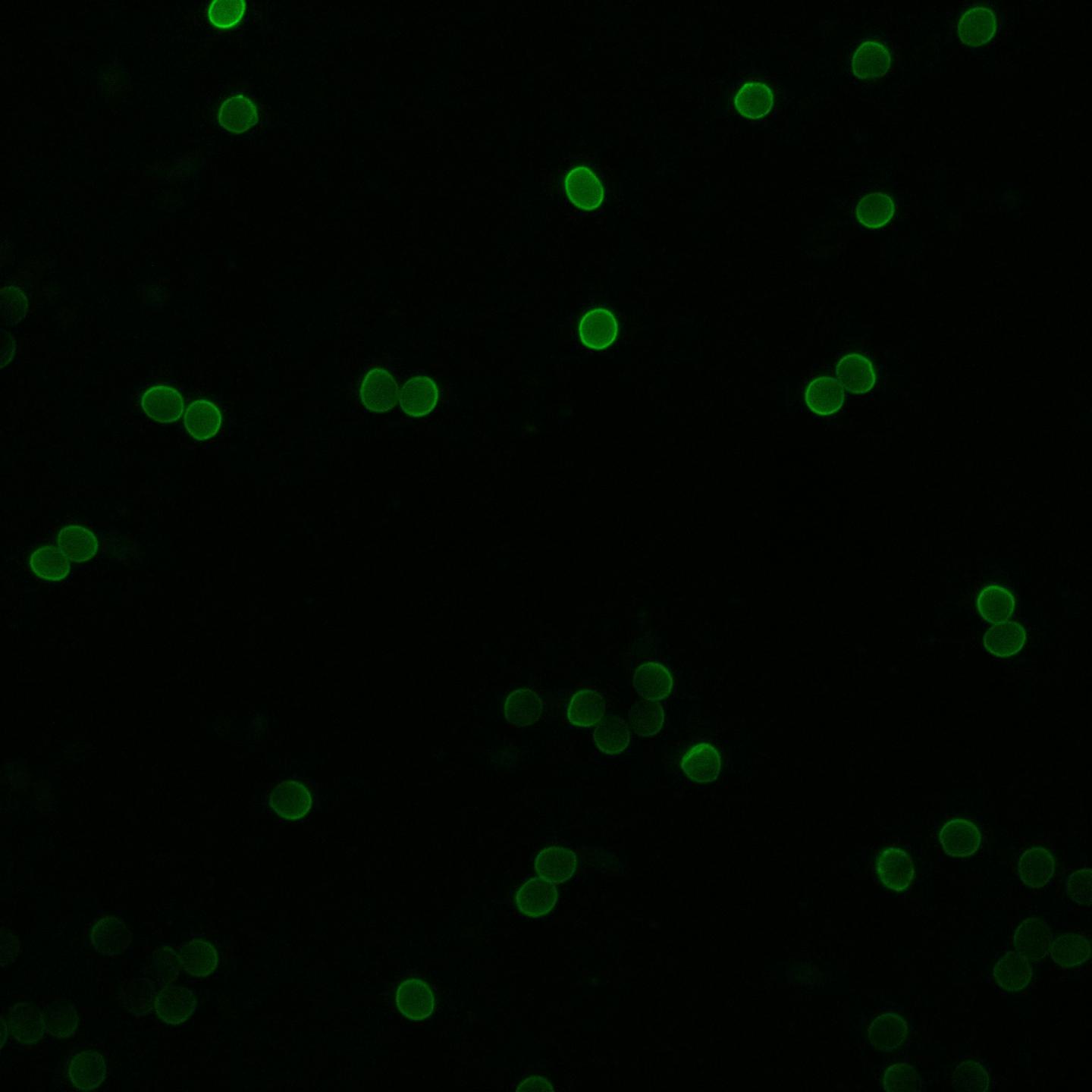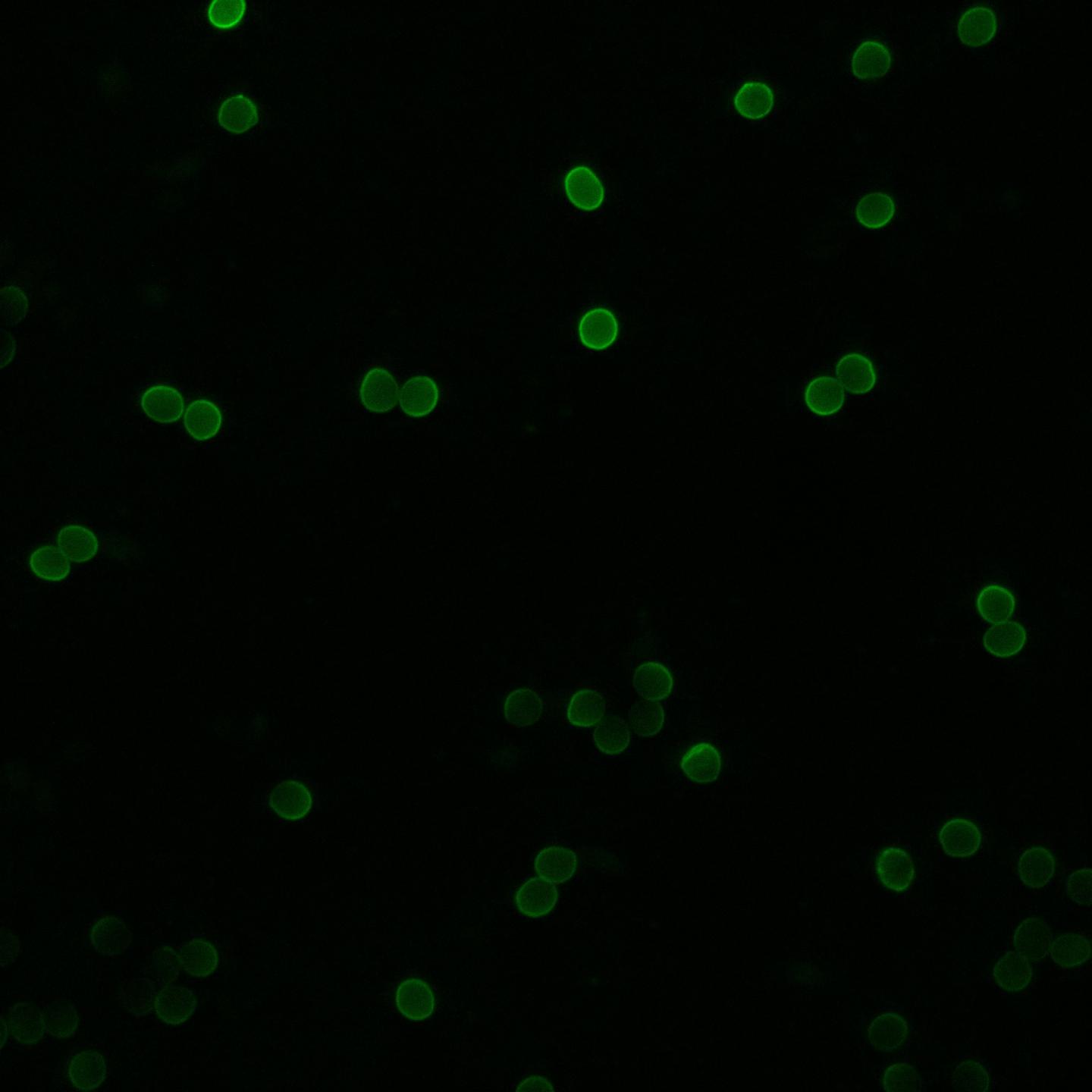
Credit: University of Kent
A research team at the University of Kent has established the first long-term cultivation system at a laboratory scale for the parasite Cryptosporidium, one of the world's worst and most common causes of diarrhoea and death from diarrhoea.
Cryptosporidium causes the diarrhoeal disease Cryptosporidiosis, which is usually spread by contaminated water supplies. The important role of Cryptosporidium as a cause of diarrhoea has been established in recent years, and outbreaks feature regularly in news headlines. Cryptosporidium-caused diarrhoea is the second major cause of death from childhood diarrhoea. In addition, individuals with an impaired immune system are at great risk.
There are no treatments for Cryptosporidium and so far, research on it has been limited, because the parasite could not be cultivated at a laboratory scale. Research led by Dr Anastasios Tsaousis and Professor Martin Michaelis of the School of Biosciences has now established the first long-term cultivation system for Cryptosporidium parasites at a laboratory scale.
This new cultivation system will transform research on Cryptosporidium:
- It will enable large-scale screening for anti-Cryptosporidium drugs
- It will enable many laboratories all over the world to investigate the parasite.
- It will enable the studying of the parasite biology in unprecedented detail.
- It enables for the first time the long-term storage of the parasite.
- It will dramatically reduce the number of animals needed for the investigation and production of the parasite.
The team has already gained important new insights into the life cycle of the parasite.
###
In addition to Dr Tsaousis and Professor Michaelis and their laboratory members, other scientists from the University of Kent have contributed to this research including Dr Jane Povey, Ian Brown, and Dr Wei-Feng Xue from the School of Biosciences and Dr Mark Price from the School of Physical Sciences.
The results are now published in the International Journal of Parasitology.
For further information or interview requests contact Sandy Fleming at the University of Kent Press Office.
Tel: 01227-823581/01634-888879
Email: [email protected]
News releases can also be found at http://www.kent.ac.uk/news
University of Kent on Twitter: http://twitter.com/UniKent
Note to editors
Established in 1965, the University of Kent – the UK's European university – now has almost 20,000 students across campuses or study centres at Canterbury, Medway, Tonbridge, Brussels, Paris, Athens and Rome.
It has been ranked 22nd in the Guardian University Guide 2018 and 25th in the Complete University Guide 2018, and in June 2017 was awarded a gold rating, the highest, in the UK Government's Teaching Excellence Framework (TEF).
In the Times Higher Education (THE) World University Rankings 2015-16, it is in the top 10% of the world's leading universities for international outlook and 66th in its table of the most international universities in the world. The THE also ranked the University as 20th in its 'Table of Tables' 2016.
Kent is ranked 17th in the UK for research intensity (REF 2014). It has world-leading research in all subjects and 97% of its research is deemed by the REF to be of international quality.
In the National Student Survey 2016, Kent achieved the fourth highest score for overall student satisfaction, out of all publicly funded, multi-faculty universities.
Along with the universities of East Anglia and Essex, Kent is a member of the Eastern Arc Research Consortium (http://www.kent.ac.uk/about/partnerships/eastern-arc.html).
The University is worth £0.7 billion to the economy of the south east and supports more than 7,800 jobs in the region. Student off-campus spend contributes £293.3m and 2,532 full-time-equivalent jobs to those totals.
Kent has received two Queen's Anniversary prizes for Higher and Further Education.
Media Contact
S.Fleming
[email protected]
44-012-278-23581
@UniKent
http://www.kent.ac.uk
Related Journal Article
http://dx.doi.org/10.1016/j.ijpara.2017.10.001





